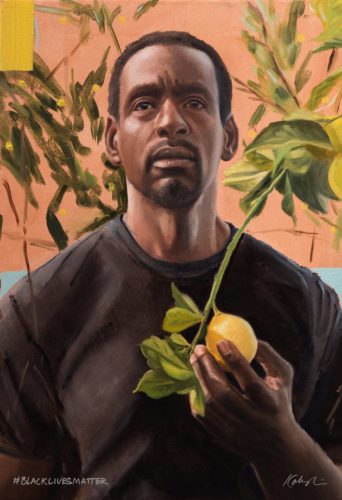A More Abundant Share — The Future Of Food Is Black
Share
Explore Our Galleries
Breaking News!
Today's news and culture by Black and other reporters in the Black and mainstream media.
Ways to Support ABHM?
From: The Huffington Post: Black Voices
Authored By: Shakirah Simley

“When Life Gives You Lemons” by Kohshin Finley
In the article “A More Abundant Share – The Future Of Food Is Black,” Shakirah Simley explains how food symbolizes deep cultural connections, generational ties to family, and acts as a symbol of power. The good food movement is the idea that, “In a very real sense, the future of food is people. And that future looks a lot like me: a young, black woman, hungry for change.”
According to Simley, the food industry can be found at the root of many issues in society: “When Black and Native American farmers faced decades of systemic bias in access to capital and credit and land loss from the USDA – it’s a food problem.” Simley describes how the “good food movement” has been ignored and pushed away for years because, “our national good food obsession can curate Instagrams of oozing sandwich stacks higher than black folks’ restaurant wages.” However, this movement goes hand in hand with the, “understanding that food injustice parallels racial injustice.”
Efforts have begun to counter this issue, Simley says, “We’re unapologetically disrupting white-dominated artisan food industries and leading our own kitchens.” This article works to repair the food system that for too long has been focused on white based communities.
Read more Breaking News from ABHM here!
To read the full article, check out Huffington Post: Black Voices!









Comments Are Welcome
Note: We moderate submissions in order to create a space for meaningful dialogue, a space where museum visitors – adults and youth –– can exchange informed, thoughtful, and relevant comments that add value to our exhibits.
Racial slurs, personal attacks, obscenity, profanity, and SHOUTING do not meet the above standard. Such comments are posted in the exhibit Hateful Speech. Commercial promotions, impersonations, and incoherent comments likewise fail to meet our goals, so will not be posted. Submissions longer than 120 words will be shortened.
See our full Comments Policy here.